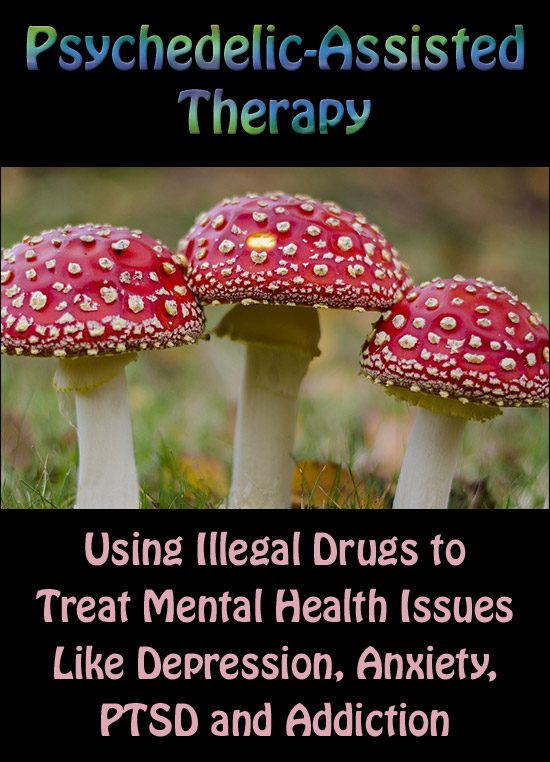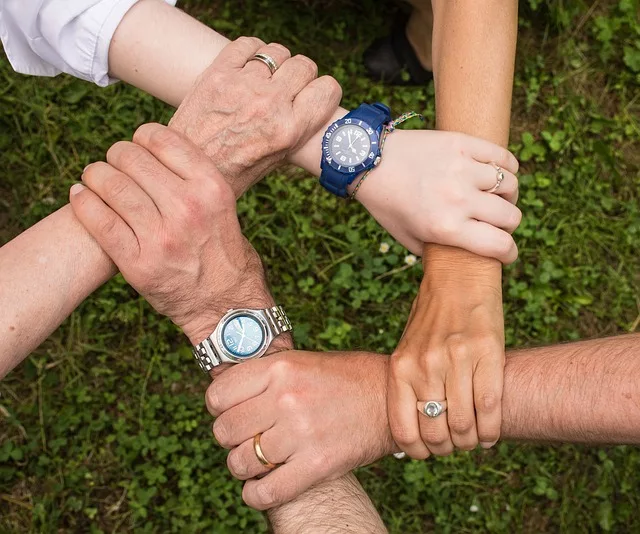Before psychedelic drugs like psilocybin mushrooms, peyote, mescaline and LSD were outlawed in the United States, scientists studied the potential medicinal effects of these substances with great interest.
After the Controlled Substances Act of 1970 classified a number of psychedelics as Schedule I narcotics, funding for this kind of research all but disappeared, until recently.

In the past decade, there’s been a renewed interest in “psychedelic medicine,” especially at it relates to treatment-resistant forms of addiction, anxiety, post-traumatic stress disorder (PTSD) and depression.
To the surprise of many sharp-eyed onlookers, the U.S. Food and Drug Administration (FDA) continues to green-light these studies and, in some cases, new drugs like Spravato, a ketamine-like nasal spray for treatment-resistant depression.
“It behooves policy-makers to be aware of and open to new approaches to treatments emerging in the field of psychedelic medicine,” Kenneth Tupper, PhD, wrote in a peer-reviewed article published by the National Institutes of Health.
“This is particularly important for those concerned about the growing prevalence of mental illness, including addiction, as well as its associated human, social and economic costs.”
What Psychedelic Drugs are Being Considered as Treatment Candidates?
Ongoing research and clinical trials are taking place with a number of psychedelic drugs, including some of the following:
- MDMA (methelynedioxymethamphetamine), also known as “Molly,” “Ecstasy,” or “E,” is in the empathogen class of psychedelic drugs. The FDA recently approved human trials for study into MDMA-assisted therapy for patients with severe PTSD
- Research into Psilocybin Mushrooms, commonly called “magic mushrooms,” or “shrooms,” as a treatment for depression has also received the FDA’s stamp of approval
- In 2008, the FDA removed a clinical hold on LSD (lysergic acid diethylamide), commonly known as “acid,” for research into LSD-assisted treatment for end-of-life anxiety, which means the government agency will evaluate and accept data from the study
What’s unique about psychedelic-assisted therapy is that the drugs open parts of the brain that don’t normally communicate with each other.
“Our psychological defenses often suppress material that is too painful, that we don’t want to deal with, and psychedelics bring that to the surface,” Rick Doblin, founder and executive director of the Multidisciplinary Association for Psychedelic Studies (MAPS), told CBS News.
Who Will Administer Psychedelic-Assisted Therapy?
One of the most important parts of psychedelic therapy is the “assisted” part, and this is where the movement is hitting some obstacles.
Psychiatrists and therapists who are qualified to legally act as “guides” for patients under the influence of psychedelic drugs are in short supply.
Many of the most qualified “guides,” people that have been doing this type of therapy illegally, unlicensed and underground, and in some cases for decades, aren’t generally welcome in these scientific studies.
In March 2018, the California Institute of Integral Studies (C.I.I.S.), in San Francisco, held the first-ever training for licensed professionals – doctors, nurses, counselors and psychologists – to become psychedelic therapists.
One drawback of the training, say some psychedelic-therapy advocates, is that the drugs the attendees are being trained to administer are still illegal and, therefore, cannot be used during the training.
C.I.I.S. is hoping the FDA will allow students to use MDMA and psilocybin in future training. Officials at the institute are also wary of students taking their new skills to the underground psychedelic-assisted therapy market.
“We are training you to be above-ground therapists,” Janis Phelps, a psychologist and administrator at C.I.I.S., told the class of trainees. “If you are thinking of working underground, you need to think about that. Because we want you to be above-ground, FDA-approved therapists. This research is squeaky clean.”
It’s clear that scientists, medical researchers, and pharmaceutical companies see the potential for psychedelic-assisted therapy. It might not be long before it’s an accepted treatment for addiction, depression, anxiety and a whole host of other issues.
Related:
What is the Difference Between Molly (MDMA) & Sally (MDA)?
TMS Therapy For Medication-Resistant Depression
What are the Signs of an MDMA Overdose?
What is Medication Assisted Treatment?





